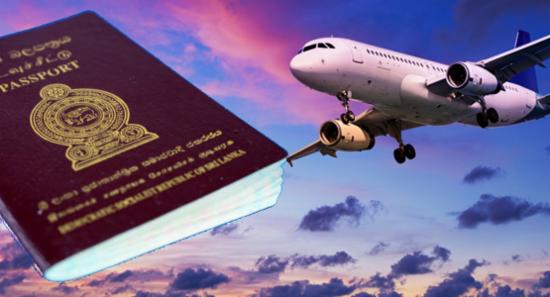.webp)
Microscopic look at Sri Lanka's worsening situation
COLOMBO (News 1st); Nothing happens without a cause and a reason. Even though many of the crises we are faced with today affects our day to day lives, it is important to remember that they did not appear out of thin air.
The fuel crisis, the power crisis, the dollar crisis, the agriculture and food crisis, the LP gas issue and a litany of other difficult situations Sri Lanka finds itself in today, all have root causes.
The 2015 Hollywood movie, ‘Our Brand is Crisis’, revolves around a plot to gain political power by manufacturing crises. Be it political power, or economic benefits, a crisis presents the perfect opportunity for those in the circle of power .
This is why, the present socio-economic crisis Sri Lanka is faced with, must be assessed intelligently and mindfully, and addressed with wisdom and experience as opposed to stopgap action.
Several issues are plaguing Sri Lanka raising questions on how they originated in the first place, as it goes without saying that there is no smoke without a fire.
In light of such a scenario, let's take a microscopic look at certain issues that have left the country in limbo.
The Economic Crisis
The shortage of dollars in Sri Lanka's financial system has crippled imports for several months.
If COVID-19 is attributed as a reason for the crisis, how did Sri Lanka's export revenue and amount of remittances rise at the outset of the pandemic?
In what seems to be an irony, Sri Lanka's export earnings and remittances of workers dropped as COVID-19 cases continue to recede.
Authorities took measures to prevent the exchange rate from floating, and to also use up it foreign currency reserves to fix the exchange rate of the rupee to the dollar.
However, now authorities say that there are neither reserves nor dollars in Sri Lanka.
Sri Lankan workers overseas are now being provided a 10 rupee incentive in addition to the exchange rate when remitting money to the country.
Amidst a shortage of reserves and dollars, Sri Lanka went ahead and repaid an international sovereign bond of 500 million US dollars in January.
At that time, experts on the subject reiterated that it would be apt for Sri Lanka to delay the repayment of its 500 million US dollar ISB.
If that was the case, why did Sri Lanka go ahead and repay the sovereign bond?
Economic experts had said there was no reason to repay the ISB on time, if no one is going to benefit through the payment.
The shortage of dollars had a ripple effect on Sri Lanka's economy and other sectors as well -- most importantly the agricultural sector.
On the 27th of April last year, authorities published a gazette banning the import of chemical fertilizer and agro-chemicals.
The move affected farmers in many areas, resulting in the lost of harvest as well.
What steps did the Government take amid such a crisis?
The government awarded a tender to China's Qingdao Seawin Biotech Group to import 90,000 metric tons of organic fertilizer.
However, local experts detected that the fertilizer contains the presence of harmful bacteria.
What was the end result of this?
The ship carrying organic fertilizer, which was even sailing in Sri Lankan waters under a different name, had to return amidst mounting pressure by local experts.
However, Sri Lanka had to eventually pay 6.9 million US dollars to the Chinese company without receiving fertilizer.
The intermediaries involving in this transaction are known to some.
In addition to that, Sri Lanka had decided to import nano nitrogen fertilizer from India, at a rate that was two or three times higher than the market value.
It was revealed in Parliament that 290 million rupees had even been deposited to a personal bank account in connection to this fertilizer deal.
This was how a few lined their pockets as the agriculture sector went into limbo.
The Gas Crisis
The gas crisis was the talking point in the country for several months.
The state-run gas company introduced a new 18-litre cylinder to the market after reducing its weight compared to the regular cylinder.
The new product was released as the two gas companies continued to demand for a price increase.
What followed this step?
The introduction of the new product was followed by a shortage in gas cylinders in the market.
Although permission was granted to increase the cost of gas cylinders, gas explosions continued to rock the country for several days.
The chairman of the state-run gas company himself admitted that there was a mafia involved in securing long-term contracts to supply gas to Sri Lanka.
A special committee appointed by the President found that the gas explosions were caused due to the change in composition.
A shortage of gas cylinders arose in the market again, leaving people in queues to purchase them, while it is being reported that moves are afoot to purchase gas on an emergency basis instead of providing a long-term tender.
Attempts were also made to merge the two gas companies in Sri Lanka and to import gas to the country.
The Fuel shortage & the Power crisis
Sri Lanka has awarded a long-term contract to the PetroChina gas company to supply refined oil, as t
he long-term contract is usually awarded to a company by calculating the demand within the country.
When a long term contract is awarded, payments are not usually made for fuel tankers immediately, and are instead paid after at least 180 days.
How did Sri Lanka lose its fuel stocks?
Sri Lanka imports refined oil as well as crude oil that would be refined at the Sapugaskanda refinery.
The long-term tender for crude oil imports had been given to the Consio Nigerian company.
However, Sri Lanka did not receive the crude oil from that company.
Eventually, the Government closed down the Sapugaskanda refinery temporarily, citing it as a step to save dollars.
As the amount of refined fuel produced by the Sapugaskanda refinery continued to decline, the Government decided to import refined oil to fill the shortage.
This bears testament to the fact that a long-term tender alone is insufficient to import refined oil to the country.
While the country was already facing a shortage of dollars and fuel, the minister's remarks of a possible fuel shortage aggravated the problem.
Payments for oil consignments that reach Sri Lanka on fuel tankers have to be made at the current rates.
Who is behind these transactions?
The central bank Governor has issued instructions to banks on offering money to the Ceylon Petroleum Corporation to purchase fuel.
At the same time, the central bank had said that it had released dollars for this purpose.
Power cuts are among the many issues affecting the people as well.
Sri Lanka experienced an island wide power outage on the 3rd of December, during a work to rule campaign by engineers.
Senior officials at the CEB raised accusations that the power outage was an act of sabotage.
Eventually, the Norochcholai coal power plant that generates 300 Megawatts of power experienced a failure due to the power outage.
The CEB had to depend on hydro power to fill the shortage, and also increase its dependency on diesel and thermal power plants.
The Sapugaskanda Refinery that produces fuel required to generate power is currently inactive.
The sequence of decisions and moves that led to this situation lies clear.
Now, moves are underway to resign contracts with independent power producers to obtain power for three years.
Sri Lanka also has the capability of generating power through Liquefied Natural Gas or LNG.
However, a 40% stake in the Kerawalapitiya LNG Power Plant and the contract to supply LNG to Sri Lanka has been handed over to a US company.
These incidents clearly portray whether these crises were natural or man-made.
These are only a few deals running up to billions of dollars.
The crisis relating to gas, fuel, cement and more recently milk powder are only a few issues plaguing the country.
Eventually, it is evident that the people who have to bear the brunt of this crises.
However, it is also evident that these issues do not seriously impact a certain group of people in the country.
A situation of this magnitude never occurred in countries that have been badly affected by COVID-19.
If that is the case, can COVID-19 be considered as a cause for this crisis anymore?
We Report. You Decide.
Other Articles
Featured News





.png )
-789167_550x300.jpg)
-789161_550x300.jpg)
-789155_550x300.jpg)
-789146_550x300.jpg)



-788581_550x300.jpg)



-785316_550x300.jpg)
















.gif)